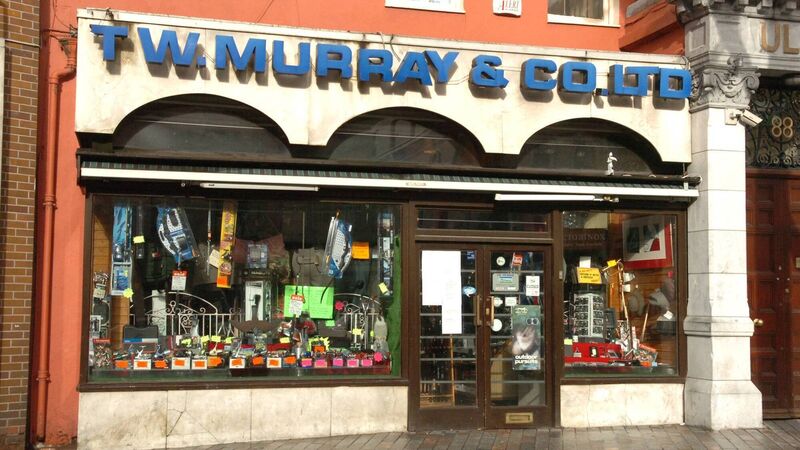Michael Moynihan: From explosives to fishing - TW Murray and Co, almost 200 years of trading

TW Murray and Co, Patrick St, Cork; the business is almost 200 years old. Picture: Larry Cummins
If you live in Cork you’ve walked past it countless times.
It’s almost two centuries old and used to sell explosives, but TW Murray and Co on Patrick St is now a dark grotto bursting with delights particular to country pursuits. Fishing rods, hooks, maggots, hurleys, worms, waders, flies, caps — the list of attractions goes on and on.












